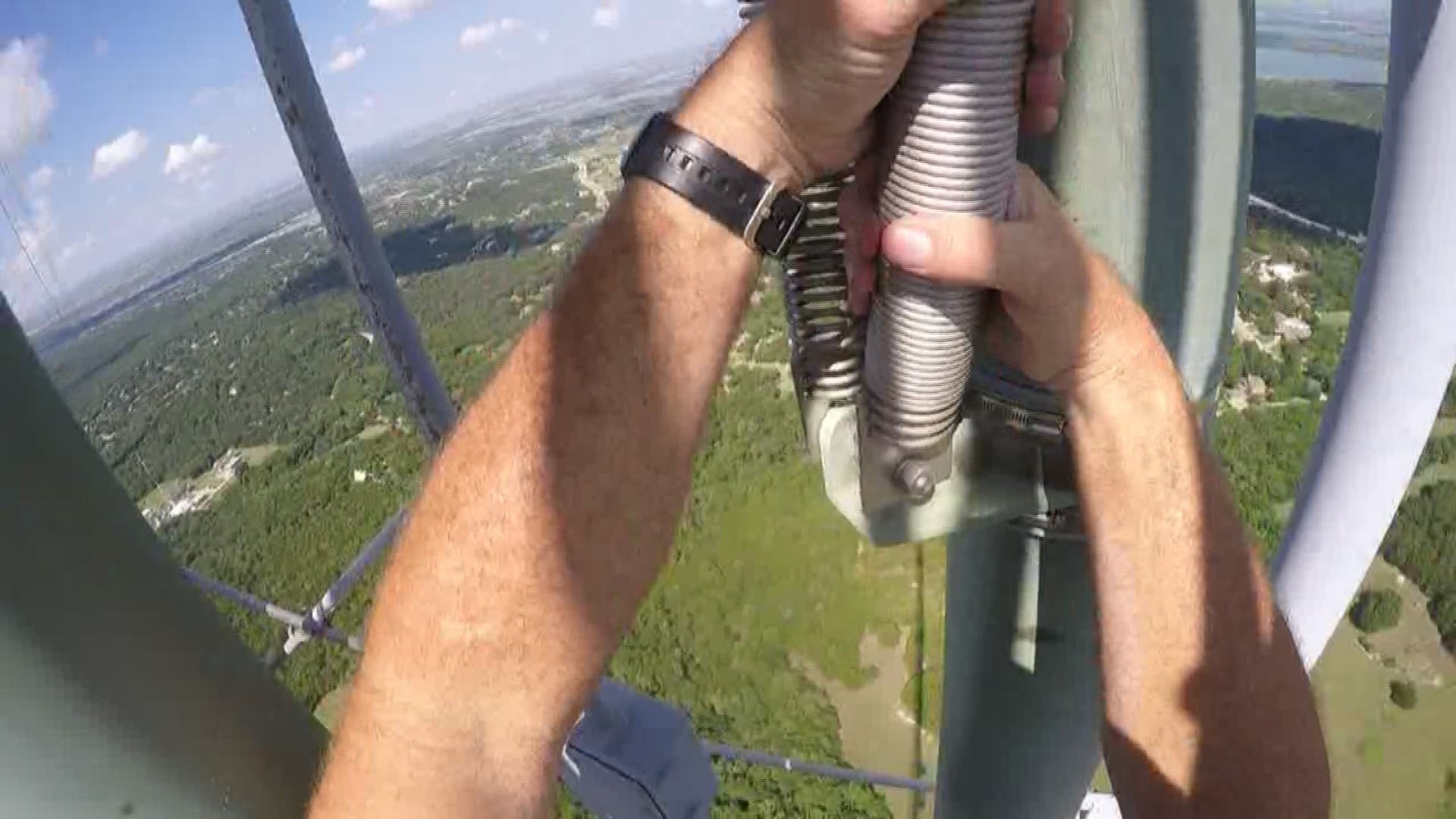Allen Glasgow is gearing up for what he considers a small climb -- 260 feet up the side of a broadcast tower in Downtown.
"Yes, that's what we would call 'easy money'" Glasgow said.
The elevator inside WFAA's broadcast tower only goes so far. From here, 41-year-old Allen Glasgow is free climbing.
"Click one, click the next one, unhook this one climb up a few feet and that will wear you out," Glasgow said while demonstrating his technique.
Glasgow is heading for a broken camera at the very top of the tower, one he safely brings back down to ground level.
Glasgow started at 18 years old. Since then, he's made a career servicing broadcast towers across the country. It's a job he says he was drawn to.
"Because of the nature of the work, the specialized equipment the experience it takes to do, it it's just very specialized," he said.
It doesn't get much more specialized than a 1,500-foot tower in Cedar Hill. That's well above any skyscraper in Downtown Dallas.
WFAA rigged up Glasgow with cameras and even flew our WFAA Drone alongside as he works his way to the top.
"If your job is at 1500 feet and you only make it to 750, you really didn't do anything, so you have to get up there and -- God forbid you forget a screw driver or a roll of tape or something," he said.
The work isn't just specialized, it's dangerous. According to the Bureau of Labor Statistics, there are 14,000 tower climbers nationwide, 1,400 are in Texas alone. According to OSHA statistics in the last four years, 34 of these climbers have died on the job.
New technology might reduce that number. WFAA was there in May when global drone manufacturer DJI unveiled an aircraft for industrial uses just like this one. At less than 10 pounds, the M-200 is a waterproof drone can beam an HD picture from the air to a tower inspector that's safely on the ground.
But what drones can't do -- at least not today -- is take out a broken spring on the spot. That's what Glasgow did from the top of a tower he was servicing in Cedar Hill.
"I don't think that we're going to get outsourced to China or Mexico or to Drones or to anything like that," he said.
For now, Glasgow and a small group of people still climb this high by hand. He's on the road for weeks at a time and his work takes him to TV and radio towers across the country.
There's no time for a fear of heights.
"Once you get up there, it's all nut and bolt work you know. You're just working on stuff and you kind of put that out of your head, and you really don't concentrate on that because you just get involved with your work," he said.
A delicate high wire act he hopes to continue as long as he can.

